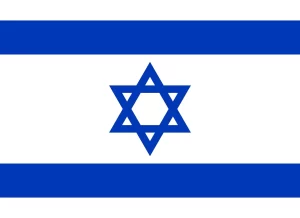Table of Contents
According to a statement from the White House, Israel has not carried out a full-scale invasion of Rafah in southern Gaza, despite reports suggesting otherwise.


This statement came shortly after Israeli forces advanced into the city center and reportedly gained control of a strategically significant hill overlooking the border with Egypt.

Join our Telegram Channel for Updates
US President Joe Biden had previously expressed concerns about Israel entering densely populated areas like Rafah, where hundreds of thousands of civilians are believed to be taking shelter. He even hinted at limiting weapons supplies to Israel if such an invasion were to occur.
The White House spokesperson, John Kirby, faced questions about an Israeli airstrike that resulted in a fire, claiming the lives of at least 45 Palestinians, many of whom were women, children, or elderly individuals at a camp for displaced people. Israel maintained that the strike was targeted at two senior Hamas officials and suggested that the resulting fire may have been caused by an explosion at a nearby Hamas weapons store.
Kirby described the aftermath of the airstrike as “heartbreaking” and “horrific,” emphasizing the need to prevent the loss of innocent lives in the ongoing conflict.
The US State Department expressed its vigilance for the Israeli military to conduct a prompt and thorough investigation into the airstrike. When questioned about the outcomes of previous investigations into similar incidents, State Department spokesman Matthew Miller refrained from citing specific cases, stating that it’s challenging to draw conclusions amid an ongoing conflict.
Regarding President Biden’s stance on the matter, Kirby reiterated that the US does not support a major ground operation in Rafah. He highlighted Biden’s warning that such actions might prompt reconsideration of US support, emphasizing that there have been no indications of IDF launching a full-scale invasion thus far.
Despite Israel’s insistence on the necessity of taking Rafah to achieve victory against Hamas, concerns about the humanitarian consequences persist. The Israel Defense Forces (IDF) initiated targeted ground operations against Hamas in eastern Rafah on May 6. Since then, there has been a gradual advance of tanks and troops into built-up areas, including central Rafah and along the border with Egypt.
President Biden’s statements have been met with growing calls within the US to pressure the Israeli government into minimizing the humanitarian impact of the conflict. Democratic Senator Chris Van Hollen, among others, urged the Biden administration to withhold offensive military assistance until assurances are provided regarding adherence to humanitarian concerns in Rafah.
Prime Minister Benjamin Netanyahu addressed the Israeli parliament on Monday, acknowledging the tragic outcome of the recent airstrike but reaffirming the continuation of operations in Rafah. The strike drew condemnation from various regional governments, including Egypt, Qatar, Jordan, Kuwait, Saudi Arabia, and Turkey, who accused Israel of war crimes and called for accountability.
The situation in Rafah remains precarious, with reports of heavy bombardment and civilian casualties. The UN has raised concerns about the safety of civilians in the conflict zone, with thousands fleeing their homes amid the escalating violence. Meanwhile, the IDF has denied reports of another airstrike hitting a tent camp in al-Mawasi, west of Rafah, leading to further casualties.









